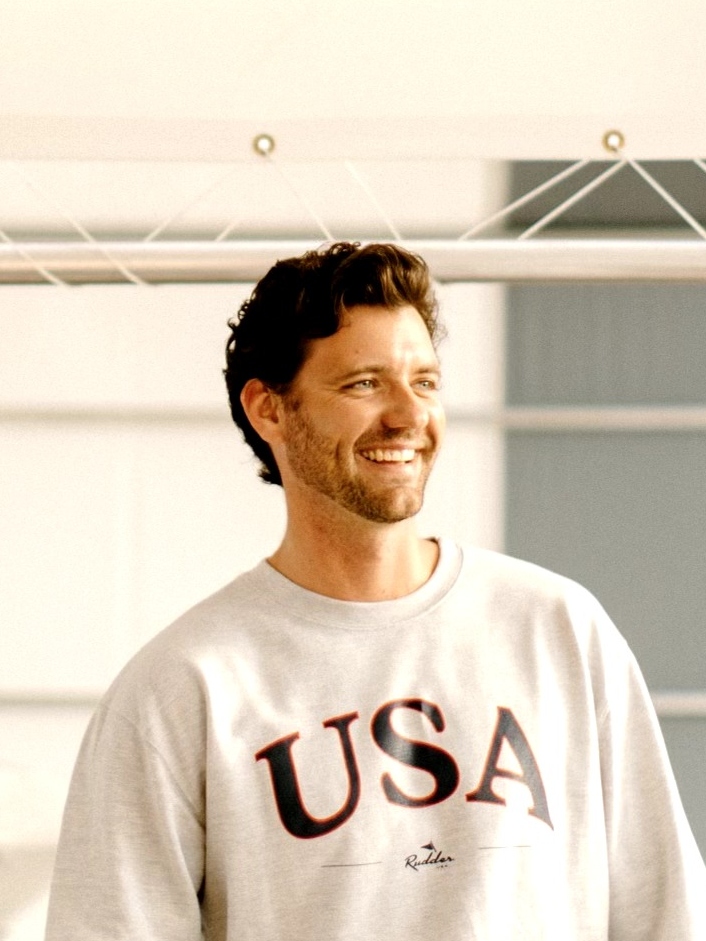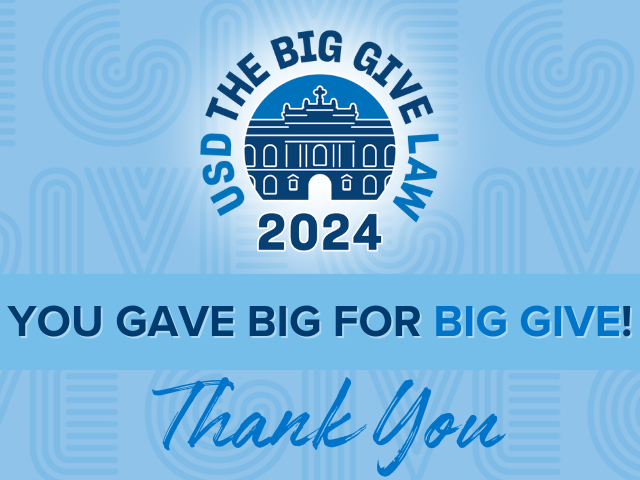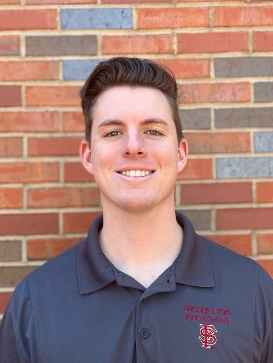Partnership Between Rosemary Coates ‘89 and Supply Chain Management Institute Creates One-of-a-Kind Opportunities for Grad Students
 Rosemary Coates '89 (front row, second from left) and Supply Chain Management Institute Director Joel Sutherland (third from left) visit San Diego Bay with USD graduate business students
Rosemary Coates '89 (front row, second from left) and Supply Chain Management Institute Director Joel Sutherland (third from left) visit San Diego Bay with USD graduate business studentsIt started with a chance encounter. Joel Sutherland, director of the Supply Chain Management Institute (SCMI) at the University of San Diego, first met Rosemary Coates ‘89 (MBA) at a supply chain industry event in Pennsylvania. Since then, they’ve become more than just peers and have developed a sincere partnership in supply chain.
“I have known Rosemary professionally for several decades. Her reputation for challenging all things related to supply chain management was what set her apart from her consulting peers,” said Sutherland. “Rosemary never settled for simply understanding best practices, she wanted to break new ground and stretch the boundaries.”
The career path of a supply chain leader
After graduating with her MBA degree from the University of San Diego School of Business, Rosemary Coates built an impressive career starting as a regional logistics manager at Hewlett Packard. She then pivoted further into supply chain and consulting when running the western region’s supply chain practice at KPMG. A group of executives from KPMG, including Coates, then went on to create their own consulting company where she ran its global supply chain practice.
After a managing director role at SAP, a multinational software corporation, Coates decided to break away in 2008. She had finally found a way to incorporate a lifelong interest in China with her professional endeavors. At the time, there was an emerging trend of companies moving pieces of their supply chain to China. Coates jumped at the opportunity to use her experience in managing global supply chain operations to help companies move their manufacturing operations overseas.
Steering away from offshoring and embracing reshoring
“For 15 years, I helped companies with their global manufacturing strategy and global supply chain strategy primarily focused on manufacturing and sourcing in China,” said Coates.
During that time, she even wrote the Amazon best-selling book, 42 Rules for Sourcing and Manufacturing in China. But a few years later, the Obama administration began to question the United States’ economic reliance on China and encouraged companies to bring manufacturing back to America.
In getting ahead of this new supply chain trend, Coates brought together some of her colleagues to design a methodology to help companies understand if and how they could bring manufacturing back to the U.S., a practice known as reshoring. That’s when she called Joel Sutherland, director of the Supply Chain Management Institute (SCMI) at USD.
“I have this crazy idea,” Coates told Sutherland. “If we started a nonprofit to assist companies with reshoring, would you house us at the SCMI? And he agreed right away.”
A blossoming partnership in supply chain at USD
At that moment, Coates established the non-profit, Reshoring Institute, at the SCMI with a dual mission: first, to help companies with their reshoring projects and second, to teach graduate students about manufacturing and global supply chains.
Since Coates had been a graduate student at the USD School of Business, she knew firsthand the caliber of the school’s students. While the institute incubated at the SCMI for three years, she entrusted nearly 15 graduate business student interns throughout that time with crucial tasks that were instrumental in developing its reshoring methodology including research, writing case studies, creating infographics and more.
“A lot of the supply chain programs around the world are huge and have hundreds of students. And to an extent, they focus on academic research,” said Coates. “What we try to do at the Reshoring Institute is to teach students through experiential learning. When they do a case study, we send them to tour manufacturing sites and talk to executives about their global strategies to see what manufacturing is really like. It’s important to us to focus on hands-on learning.”
Once Joel Sutherland stepped down as director of the SCMI, the Reshoring Institute became independent and established new relationships with multiple universities. However, a couple of years ago, Sutherland resumed his role as director and reconnected immediately with Coates and the Reshoring Institute. Today, its partnership with USD forges on and Coates also continues to provide guidance to the SCMI as an advisory board member.
“She has been a visionary board member, passionate supporter, frequent guest speaker, workshop facilitator and more,” said Sutherland. “With the current and ongoing crisis, reshoring is in the news more than ever (as is supply chain management). As a consequence, I believe Rosemary, and the Reshoring Institute will play an even more important industry role in the years to come.”
Reshoring Institute steadfast in providing educational opportunities
Even during the COVID-19 pandemic, the Institute and Coates remain committed to bringing on interns to help them deliver on their mission of helping companies re-establish manufacturing practices in the U.S. MBA student, Rafael Ferraz, will be beginning his internship with the Reshoring Institute this summer.
"The pandemic is about to change the way big corporations understand manufacturing cycles and optimal positioning when it comes to global supply chain strategies,” said Ferraz. “I look forward to my internship with the Reshoring Institute to better understand this and the strategies that companies are considering to bring back manufacturing to the United States, creating jobs at the very moment that we need it the most."
Coates is a dedicated Torero through and through
So why has Coates remained so dedicated to the USD School of Business over the years? It’s simple, she’s been driven by a desire to give back.
“I went to USD on a free ride sponsored from my company at the time, Cubic Corporation,” said Coates. “So I really feel like I need to give back to the university. I donate and I’m just delighted to serve on the SCMI’s board of advisors and help support Joel in any way I can.”
Not only that but having such a strong connection with the USD School of Business gives Coates a good reason to escape her home in Silicon Valley to visit USD’s gorgeous campus and reunite with good friends.
“The whole atmosphere at USD is very different than other universities. It’s very welcoming, very supportive, and very community-oriented.”
Contact:
Gabrielle Horta
ghorta@sandiego.edu
(619) 260-4468



